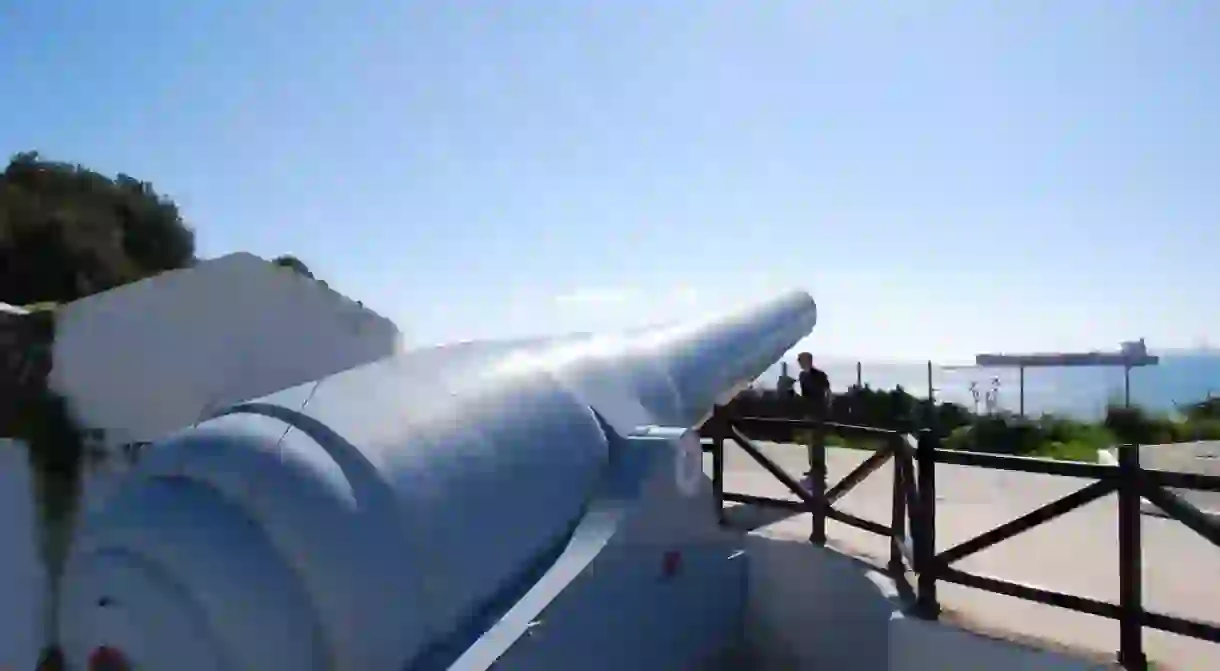The Top Museums to Visit in Gibraltar

The British overseas territory of Gibraltar is home to a number of superb museums that explore its rich and complex history. From a 100-ton gun and secret tunnels to live glassblowing demonstrations and breathtaking stalagmites, read on to find out what awaits you at Gibraltar’s top museums.
Great Siege Tunnels
The Great Siege Tunnels, situated towards the top of the Upper Rock, are one of Gibraltar’s star tourist attractions. Dug by hand during the 1789-83 Great Siege of Gibraltar – an unsuccessful attempt by Spanish and French forces to seize the territory from Britain – their purpose was to facilitate the installation of big guns on an otherwise inaccessible part of the Rock called “The Notch”. Extreme military pressure hastened their construction, and in just five weeks more than 25 metres of a 2.4 sq metre tunnel had been built.
Second World War Tunnels
During Word War II, the network of subterranean corridors dug during the Great Siege were expanded in order to accommodate a 16,000-strong garrison and all of its supplies. A further 17 miles of tunnels were added to the existing seven, the main purpose of which was to connect up a new military base on the south-east of Gibraltar with established bases on the west. Two major north-south arteries were also added – the Great North Road and Fosse Way – both of which run effectively the entire length of the Rock.
Gibraltar Museum
Museum
For a general look at this country’s many-sided history, head to the Gibraltar Museum. Its various rooms explore the cultural influences that have shaped this territory from Carthaginian times, looking at its alternating periods of Moorish and Spanish rule as well as its three-hundred-odd years under British dominion. Other panels and exhibits explore Gibraltar’s natural history and the marine life supported by its coastline, whilst in the basement the 14th century Arabic baths are some of the best-preserved in Europe.
St Michael’s Cave
Natural Feature

St Michael’s Cave is one of Gibraltar’s must stunning geological features. Over thousands of years, erosion has carved out of the limestone a series of underground caverns and tunnels so deep that they are said to stretch under the Straits all the way to Africa; indeed, legend has it that this is how the Barbery apes first arrived here from Morocco. They are home to some truly breathtaking stalactite and stalagmite formations and consist of upper and lower chambers connected by sheer drops of up to 45 metres. The Cathedral Cave is now also home to a 600-seat auditorium.
Ton Gun
Gibraltar’s 100-ton gun is one of the territory’s key attractions and overlooks Rosia Bay at the Napier of Magdala Battery. In service between 1877-1906, it was originally one of four manufactured: two were sent to Malta and two to Gibraltar, of which this is the only one that remains here (the other surviving gun can be visited in Malta). In fact weighing 103 tons, it could only fire once every four minutes and its range was a relatively limited 3.7 miles – but at that distance it could still blast through 15 inches of steel.
Military Heritage Centre
Memorial
Situated in the Princess Caroline Battery just beneath Gibraltar’s Moorish castle, the Military Heritage Centre displays a range of artefacts relating to the Battery’s military history from the 18th century on, in particular from the Great Siege of 1789-83. In addition to items such as shells and weapons used in the defense of Gibraltar from its many assailants over the centuries, there is a Memorial Chamber in which the regiments deployed to fight for the territory are remembered. Best reached by an undemanding half-an-hour walk downhill from the top cable car station.
Gibraltar Crystal
Shop
Gibraltar is famous for its exquisite handcrafted glassware, so the place to head if you want to learn all about this local speciality is Gibraltar Crystal, located on the terrace-lined Casemates Square. Once you’ve strolled around the small but fascinating exhibition space – which features panels explaining the centuries-old techniques and tools used in glassblowing – you can see the art performed in front of your very eyes (for free) in the adjacent workshop, where three masters of the trade ply their craft. The resulting glassware is sold in the attached shop, in which you can also have your choice customised for no extra charge.













